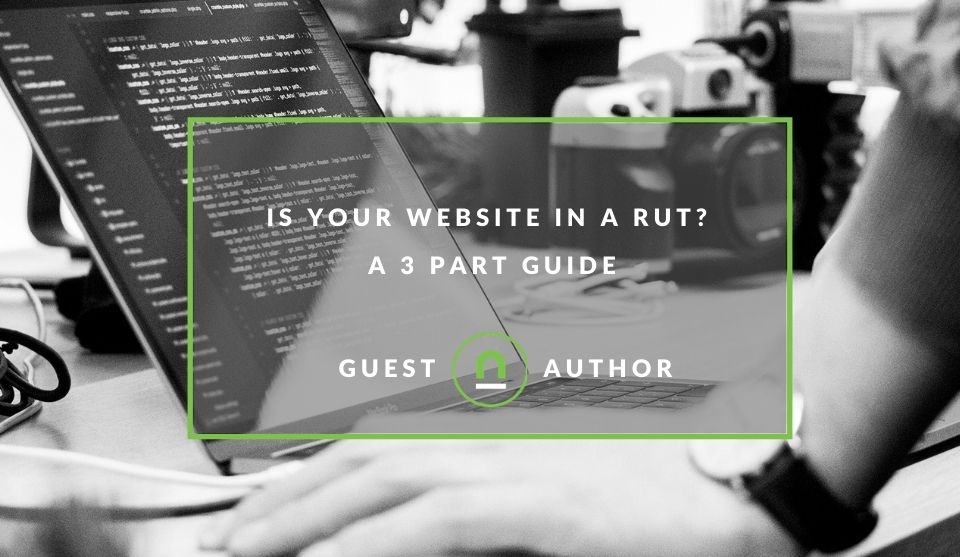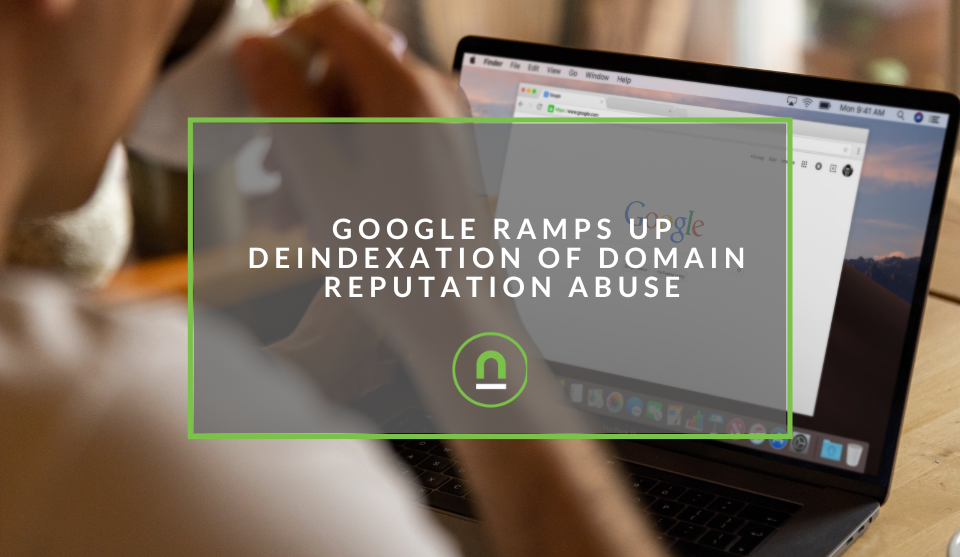Recent posts

Industry Experts
A Comprehensive Guide to Flyer Design: Digital & Physical Distribution
26 December 2024

Money Talks
Why Is There A Surge in Bitcoin Adoption in South Africa
24 December 2024

Mind, Body & Soul
Understanding Cannabis in Modern Wellness
12 December 2024

nichemarket Advice
How AI Search Engines Will Monetise
09 December 2024
Popular posts
Extravaganza
Trending Music Hashtags To Get Your Posts Noticed
24 August 2018
Geek Chic
How To Fix iPhone/iPad Only Charging In Certain Positions
05 July 2020
Extravaganza
Trending Wedding Hashtags To Get Your Posts Noticed
18 September 2018
Money Talks
How To Find Coupons & Vouchers Online In South Africa
28 March 2019
Is Your Website In A Rut? A 3 Part Guide
19 December 2020 | 0 comments | Posted by Zanthé Agrela in Industry Experts
It's pretty easy to get stuck just going through the motions of everyday tasks and forget to update your website with the current times and demands of your target audience. We do it all the time — we get so caught up in the mundane routines of running our business that we often set up our business's website and forget about it. This includes forgetting to re-look, update and maintain our biggest silent salesperson.
In this article, I'll be highlighting the 9 signs that your business's website could be working against you, is in a rut, and it's now the time to take action. I'll also show you how to address and fix these, so your website is in a condition to increase your conversions.
Your website is completely outdated.
Your website is outdated if it has products you no longer offer, services you no longer provide, outdated contact details or not enough info on new products or services. Even if your business has adjusted the way it operates since COVID-19, that too should be on your website.
You haven't updated your website.
With an outdated website, not only will your info, blogs, galleries and all your info become outdated and no longer relevant, you also run the risk of plugins which stop getting supported, links that get deleted, videos that get moved etc.
- When was the last time you checked every page and link on your site?
- Got an intern or assistant?
This is a perfect opportunity to have them review all the content and links and jot down any errors or areas to improve on.
You aren't tracking your website's performance.
Without proper tracking, you don't know how your website's visitors perceive your website, how long they're spending on-site or what pages they frequent. You're missing out on valuable info such as who your online audience is, as well as pretty much everything about their behaviour on your website. Worse still, if you're spending marketing spend, you have no clue if it's working or not.
You've lost sight of your website's primary mission.
Are your website visitors struggling to find the info they need? Think back to the primary mission of your website- was it to sign up for a newsletter, to fill out a contact form, add an item to cart and purchase, or to read and interact with your blog? Whatever that main mission is, it should be prominent and feature clearly on your site.
You haven't optimised for mobile-first.
Most internet traffic from South Africa now comes from mobile traffic, however many websites still aren't built for mobile optimisation or designed for mobile-first. It leaves a terrible user experience for the visitor when the web page is unreadable or not functional on a smaller mobile screen.
Inferior or inconsistent branding.
If your logo design and corporate colours are lacking cohesion, this can leave an inconsistent brand look and feel throughout your website and digital channels. Too many stock photos can also leave a very generic feel that won't resonate with anyone, while too many elements can leave your web pages feeling cluttered.
Poor navigation.
Poor, user-unfriendly navigation can confuse your site visitors and hide your content from search engines. Not considering the user end usability of your website will leave your visitors irritated and bouncing from your site.
No use of modern code or standard compliance.
These are a bit harder to see with the untrained eye, but they tie back into outdated websites a lot of the time. This includes outdated or unnecessary code, unnecessary flash intros, flashing buttons, using Flash, frames, unnecessarily long URLs, using tables instead of DIVs, keyword stuffing, etc. Not only do these items lead to slower website speed and hinder usability for your end-user, but they can also lead to your site, scoring lower SEO scores.
Under-utilised channels.
Not producing any new content or worse, having outdated or incorrect content is a sure-fire way to look outdated and stale. Whether this is your social media channels, video content, newsletters, business blogs, galleries and so on, make sure you're using these to your advantage and presenting your business in the best light possible.
Is your website in a rut? Part 2: Improving your website
If the COVID-19 outbreak hasn't highlighted the impact of an online presence for both B2B and B2C businesses, I don't know what will. Creating a good online presence consists of firstly, having a website and secondly, having digital offers and means of purchasing through an e-commerce site. In my previous guide, I discussed how to establish if your website is in a rut.
In this guide, I'm delving into how to get and stay out of it using actionable steps you can take today. These steps will help ensure your website resonates with its audience, is relevant to your business and most importantly, drives and produces sales.
Here's how to make your website the most convincing salesperson in your team.
If you don't have a website, where've you been?
No matter whether you're a massive brand or small start-up, if you're serious about your business or turning your side hustle into a full-time (or even part-time) business, then you need a website and a good one at that. Don't even waste your time with DIY websites that look and feel slapped together.
If you aren't a web designer, get an agency to design a website in mind with the marketing efforts you hope to run. Just like DIY car repairs, plumbing or electrical work, some things are just worth paying an expert to do well, and web development is one of those things.
Re-evaluate your website every 2-3 years
It's important to update your site whenever your services or products have changed, or your contact info, means of booking or purchasing have evolved. In situations such as COVID-19- your site should reflect any changes, newly adapted offerings, etc. Think of your website as a work in progress, instead of a "set it and forget it".
Better yet, make your website work even harder for you and your business by enabling it with ever-changing content- such as a blog. Not only will this establish your brand as a thought leader in your specific sector, but it'll also bring organic traffic to your website for free.
Well-written, relevant content that's related to your business, your offerings, tips, tricks and advice (much like this article you're reading right now) will work wonders for your business, and pretty much all it costs you is your time. Don't allow your website to become stale, outdated and irrelevant- that would be an injustice to your business.
Work with an agency
A solid reason for hiring a marketing agency to build your website is the ability to track your website's performance. Professionals know how to set this all up for you, ensuring your code is up-to-date with the latest protocols and standards. They can make sure your navigation is clear and easy to use, and that they've tested your site with the users' experience, interface and functionality in mind. And of course, optimised towards mobile-first- not friendly but first. In a nutshell, they kind of know what they're doing.
Use your objectives
Be clear on the objective of your website, and put this at the forefront of your web design. Whether you're aiming for users to sign up to your newsletter, donate to your cause, purchase a product, read a blog article, make an appointment, etc., make sure your objective is clear from the get-go (and features on the home page of your site).
Use consistent branding
The branding across all your online and offline platforms should be consistent and on-brand. It would help if you stayed clear and consistent about the way your brand is portrayed across all channels.
Utilise digital channels
Be aware of and utilise the digital channels that are relevant to your business and industry. This includes various social media channels, your business blog, galleries, newsletters, etc. Update them by producing new, relevant content on an ongoing basis.
Time to market
Once your website and social media channels have been optimised with up-to-date content, their performance is being tracked, and they've been tried and tested with your target audience, remember your website is only as good as its marketing. With even the smallest amount of marketing budget, you can get your website, content, products and services in front of the right audience at the right time (when they're searching for it). If you aren't marketing, chances are they'll find your competitors instead.
As a general rule of thumb, B2C products and services do phenomenally well on Facebook, and Instagram paid marketing. B2B products and services generally do better on LinkedIn and Twitter. But no matter the industry, all businesses thrive on Google Search and benefit from having a monthly newsletter. Producing fresh, new content through your business blog will greatly help your SEO efforts.
There you have it- my tips to getting your website out of its marketing rut. A website is such a crucial part of your business' success. It shows professionalism, enables sales and reaches consumers in their initial purchase cycle (when they're searching via search engines). It provides easy access for your target audience to find you, but most of all, it provides a platform to make and secure ROI for your business.
Is your website in a rut? Part 3: Creating a stand-out website
In part 1 of this 3-part series, I shared my tips on how to identify whether or not your website is serving and producing efficient results for your business. In the second guide, I discussed actionable steps to make the most of your website. In this third and final guide, let's look at the common elements which most successful websites have in common, and what we can learn and implement into our sites.
The ingredients for an outstanding website
First and foremost, the very best websites are clear in terms of the products, services and offer provided. The navigation is clear, the purpose of the business is evident from the home page, and it's easy to perform the desired action in very few, simple steps to create that conversion fast. Many successful websites have fresh, new content- either monthly, bi-weekly or in the best-case scenario, each week whether this is a business blog, video content, new product posts, etc.
It should be something that keeps your audience coming back to you. Such content also makes customers (and even competitors) see your business as the expert in your said field. It's pretty easy to share tips and advice, techniques, how to's, demonstrations etc.
The list is endless on how to produce new content that's relevant and useful to your target audience. This also has the added benefit of facilitating new organic website traffic, that's essentially free.
Touching on the point above, the very best websites have original content- not just in terms of their content and not using template designs, but also with their images. They don't use generic Shutterstock images but opt for an original design that complements the look and feel of the brand instead.
What about that "WOW" factor- and no I'm not talking about flashy, large images that take forever to load. I'm talking about quick loading times, sleek design that's mobile-first and something unexpected that's visibly pleasing to the visitor. You can't go wrong with a simplistic design that's uncluttered, with plenty of white space and one or two engaging, large images that load fast.
Marketing matters
The last and most important trick is to utilise your most powerful tool- the internet. Even the best-looking and functioning website won't result in online visitors eagerly flocking to your website to purchase your items, sign up for your newsletter or whatever the purpose of your site is. Your website is only as good as your marketing efforts.
Trust the professionals
Let's get honest, how much do you know about web development, SEO and content generation? If you're a business owner, probably not enough and you likely don't have the time to up-skill and do HTML classes. So, why then do so many business owners decide to DIY their websites? Well put, it's cheap; but like everything in life, you get what you pay for when hiring a service provider.
The truth is, a slapped-together website isn't going to do your business any justice. The best websites aren't template-driven sites, they don't have flash and other gimmicks enabled, and they aren't DIY efforts made at your dining room table on a Saturday morning.
They're built from scratch using up-to-date code, they're tagged with performance tags from the get-go, and they're most likely built by a marketing agency. Working with an agency ensures that your marketing efforts will be properly thought out, before building the website, and that all necessary measurements can be put in place.
Getting out of the digital rut
With this series, I've provided you with an inside look on how to achieve online success using your most hardworking sales tool- your website. I hope this has put into perspective why your site is such a critical part of your business, and how to utilise it best to get results.
If you need a new and improved site, a brand refresh, or you're ready to get your marketing off the ground, email me on zanthe@arcinteractive.co and let's talk. For more information, visit www.arcinteractive.co.
You can also follow Arc Interactive on Facebook, Twitter or on Instagram
Tell us your story
Would you like to write for nichemarket just like Zanthé has? Find out how to submit a guest post and when you're ready, you can contact us.
Contact us
If you would like us to improve the advertising for your site or want to know more about digital marketing for your business, then don’t be shy we’re happy to assist. Simply contact us
Are you looking to promote your business?
South African Business owners can create your free business listing on nichemarket. The more information you provide about your business, the easier it will be for your customers to find you online. Registering with nichemarket is easy; all you will need to do is head over to our sign up form and follow the instructions.
If you require a more detailed guide on how to create your profile or your listing, then we highly recommend you check out the following articles.
Recommended reading
If you enjoyed this post and have a little extra time to dive deeper down the rabbit hole, why not check out the following posts on digital marketing.
You might also like
Google Ramps Up De-indexing of Domain Reputation Abuse
24 November 2024
Posted by Che Kohler in nichemarket Advice
Google continues to fight against publishers, removing their pages from search results for unrelated made-for-advertising content or affiliate-only c...
Read moreHow to Improve Your Decision-Making Skills as a Prop Firm Trader
02 December 2024
Posted by Nina Sandic in Money Talks
Key strategies that drive decision-making skills in prop trading. Master risk management, emotional control, and analytical techniques to boost your ...
Read more{{comment.sUserName}}
{{comment.iDayLastEdit}} day ago
{{comment.iDayLastEdit}} days ago
 {{blogcategory.sCategoryName}}
{{blogcategory.sCategoryName}}


